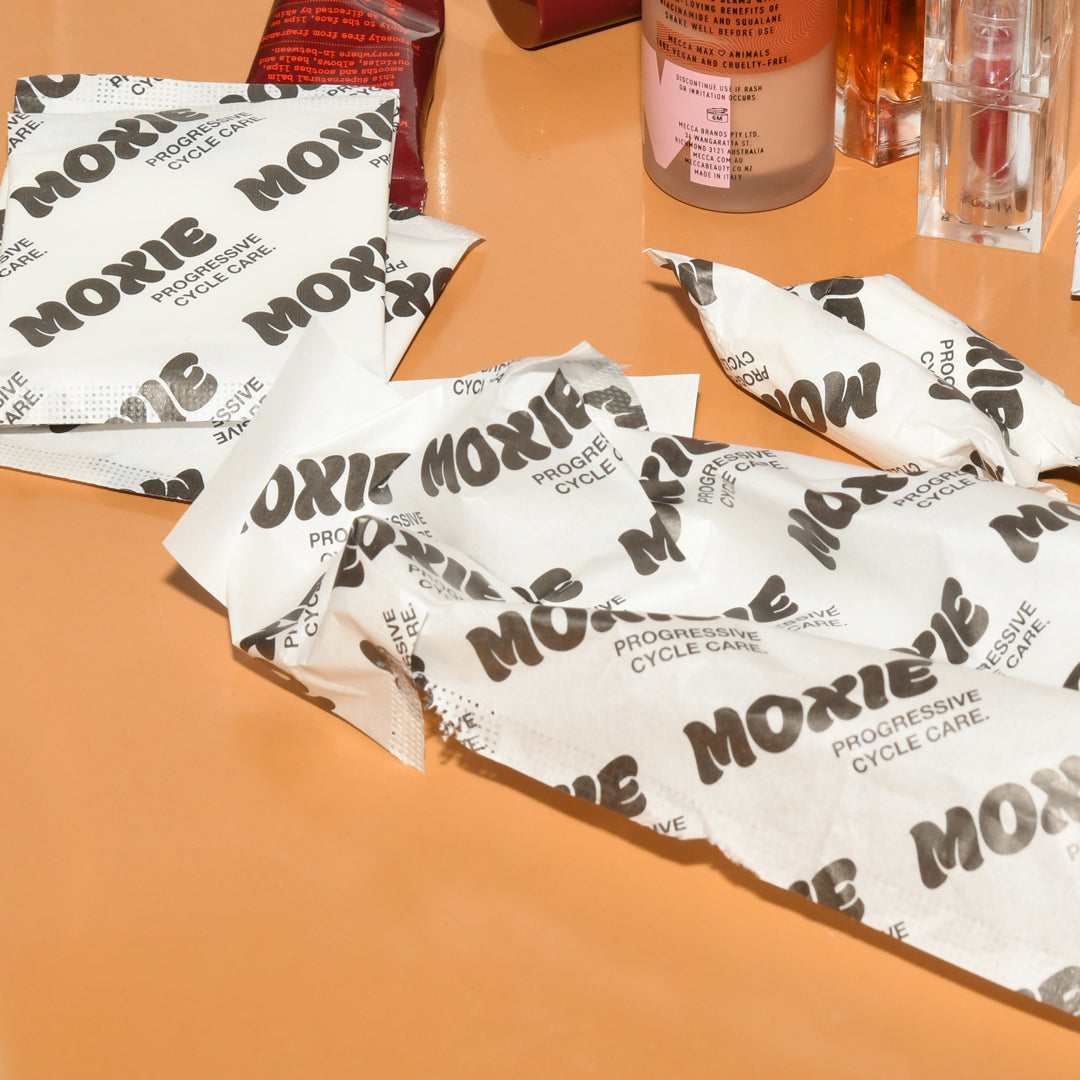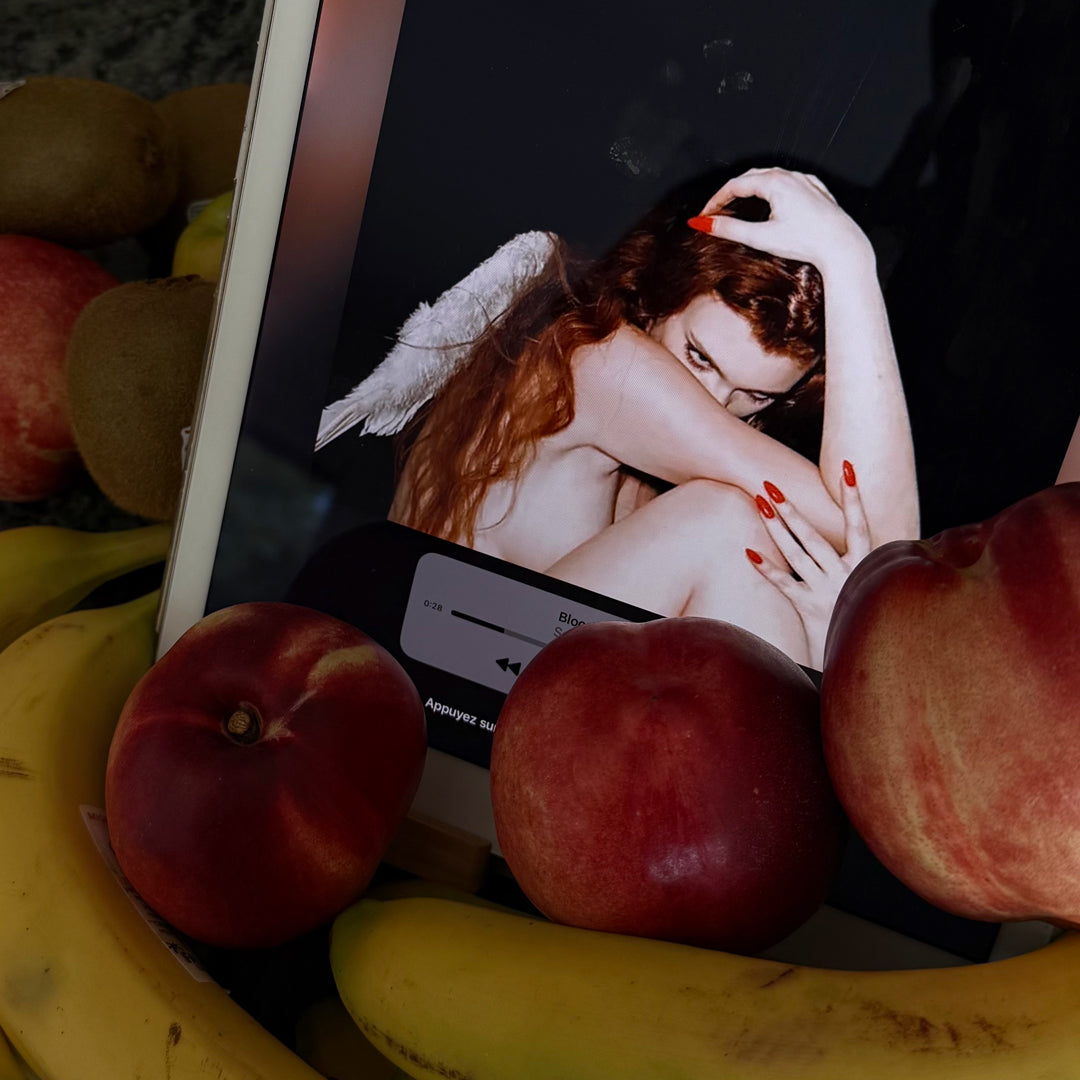Top tips for an easier period.

Whilst your period is a good time to let your body rest and recharge, it doesn't have to derail your entire week. While 90% of us will experience some level of period discomfort, there's a lot you can do to make things more manageable - and most of it is surprisingly straightforward.
At Moxie, we're all about cutting through the noise. No period shame, no suffering in silence, no complex or impractical solutions - just practical hacks that actually work. We've pulled together the questions we hear most often, plus some genuinely useful tips and tricks that can make a real difference to how you experience and feel during your cycle.
WHAT CAUSES PERIOD CRAMPS?
Period cramps are caused by prostaglandins - natural chemicals produced in your uterine lining. These hormone-like compounds cause your uterus to contract, helping shed the lining during menstruation. Higher prostaglandin levels mean stronger contractions and more intense cramping. The good news? Prostaglandin levels peak just before your period and naturally decrease once bleeding begins, which is why cramps often ease up after the first few days.
HOW MUCH BLEEDING IS NORMAL DURING A PERIOD?
Most women lose only 3-4 tablespoons of blood during their entire period, which is less than you might think! A normal flow typically lasts 3- max 7 days. However, if you're soaking through a pad or tampon every hour or two, using more than 10 products per day, or bleeding for more than 7 days consistently, it's worth discussing with your healthcare provider.
WHY IS MY PERIOD IRREGULAR?
Irregular periods are completely normal, especially in your teens or during times of stress, significant weight changes, or intense exercise. A typical menstrual cycle ranges from 21-35 days, but it can take up to three years after your first period for cycles to become regular. Factors like illness, travel, hormonal changes, and lifestyle shifts can all affect timing.
HOW LONG SHOULD A PERIOD LAST?
A normal period lasts anywhere from 3-7 days. Some people have shorter 2-day periods, while others may bleed for up to 7 days - both can be completely normal. The key is knowing what's typical for your body and noting any significant changes in duration or flow. If you're bleeding for more than 7 days, see your doctor.
WHAT'S THE BEST NATURAL RELIEF FOR PERIOD CRAMPS?
Heat therapy and our Moxie FLO TEA both top our list for natural cramp relief. Apply a hot water bottle to your lower abdomen or back, take a warm bath, or use heating patches for on-the-go relief. Heat helps relax uterine muscles and improves blood flow. Other effective natural remedies include gentle exercise (which releases pain-relieving endorphins), staying hydrated, and practicing stress-reduction techniques like yoga or meditation.
Check out our comprehensive modern period guide, which lists more natural pain relief methods, with expert tips.
CAN I EXERCISE DURING MY PERIOD?
Absolutely yes you can exercise during your period if you feel up to it! Exercise is actually one of the best natural pain relievers for period discomfort. Physical activity releases endorphins, improves blood flow, and can reduce bloating. You don't need intense workouts - light activities like walking, yoga, or swimming can be incredibly beneficial. Listen to your body and adjust intensity as needed.
WHAT FOODS HELP WITH PERIOD PAIN?
Anti-inflammatory foods can significantly reduce period discomfort. Focus on omega-3 rich foods like salmon, walnuts, and flaxseeds. Leafy greens, berries, and foods high in magnesium (like dark chocolate and almonds) can help relax muscles. Stay hydrated and consider herbal teas like ginger, chamomile, or raspberry leaf, which have natural anti-inflammatory properties.
Learn more about how nutrition can support your cycle with expert tips from our resident Clinical Naturopath, Danni Bichler, in our cycle syncing guide.
HOW CAN I REDUCE PERIOD BLOATING?
Drinking plenty of water is key - it sounds counterintuitive, but staying hydrated actually helps prevent water retention. Limit salt, caffeine, and processed foods in the days leading up to your period. Gentle movement and anti-bloating teas like dandelion or peppermint can also provide relief.
SHOULD I USE TAMPONS OR PADS?
The choice is entirely personal - pads are great for beginners, overnight use, and heavy flow days, while tampons offer more freedom for swimming and sports. Tampons should be changed every 4-6 hours to help reduce your risk of infection and serious illness like TSS (toxic shock syndrome), though pads should also be switched out regularly to prevent bacteria build-up. Many people use a combination; pads at night and tampons during the day. Menstrual cups are also becoming popular as an eco-friendly, long-lasting option.
WHAT'S THE BEST PAIN RELIEF MEDICATION FOR PERIODS?
NSAIDs (nonsteroidal anti-inflammatory drugs) like ibuprofen and naproxen are most effective because they specifically target prostaglandins. Consult with a pharmacist or doctor first, but they are most effective when taken at the first sign of cramps or even the day before your period begins. Always take with food and follow package directions.
WHAT SHOULD I PUT IN A PERIOD EMERGENCY KIT?
Pack the essentials: 3 - 4 period products (either pads or tampons), spare underwear, pain relief and intimate wipes. Keep a kit in your bag, car, and work desk, just in case.
WHAT'S THE BEST SLEEPING POSITION TO PREVENT PERIOD LEAKS?
First, opt for a specific overnight pad that has a longer length (ours are 33cm long) and sleep in the fetal position (on your side, knees curled up). This position helps reduce pressure on your abdomen and minimises backward flow. Avoid sleeping on your stomach if you can as this increases abdominal pressure and can cause leaks.
HOW DO I PROTECT MY SHEETS FROM PERIOD STAINS?
Use the double-sheet method: fitted sheet, then a dark towel or waterproof layer, then another fitted sheet. If you leak, just remove the top layer. Place towels strategically where you sleep and invest in a breathable waterproof mattress protector.
WHAT'S THE FASTEST WAY TO REMOVE PERIOD STAINS?
Fresh stains: Rinse immediately with cold water or cold sparkling water, then put through a regular wash cycle with laundry detergent. For stubborn spots, rub with the corner of an ice cube then wash as normal. Set stains: Blot with hydrogen peroxide or lemon juice, then rinse with cold water, then wash as normal. Never use warm water as this can sets the blood proteins in the fabric permanently.
FINAL THOUGHTS
Remember, every person's period experience is unique. What works for your friend might not work for you, and that's totally ok. The key is experimenting with different comfort strategies - whether that's heat therapy, gentle exercise, dietary changes, or the right menstrual products - to find your personal period toolkit for your own period made easier.
GOT MORE QNS? JOIN THE CONVO AND OUR COMMUNITY @MOXIEHQ ON TIKTOK
NOTE: just like the discussions had and info provided on TikTok, the information provided here is intended to educate and inform only, and does not constitute medical advice or replace a personalised medical diagnosis from your GP or a medical professional. The aim is to inform and encourage you to get to know your flow and your body, and get checked if things seem off in any way.



